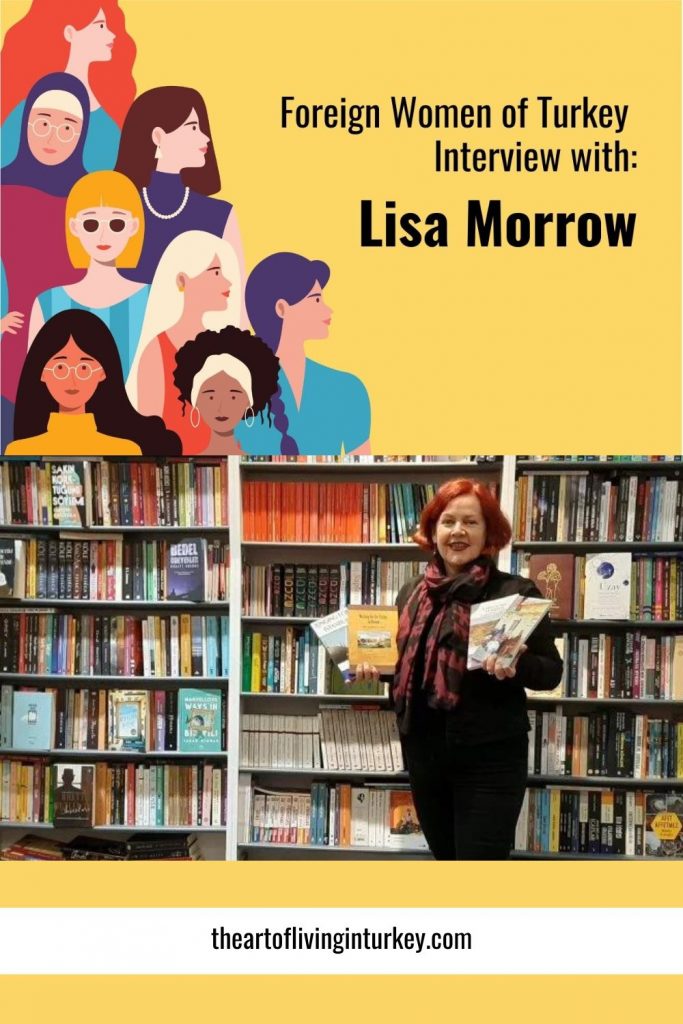The Fascinating Istanbul Life: Explore a Vibrant Culture Through a Sociologist’s Perspective
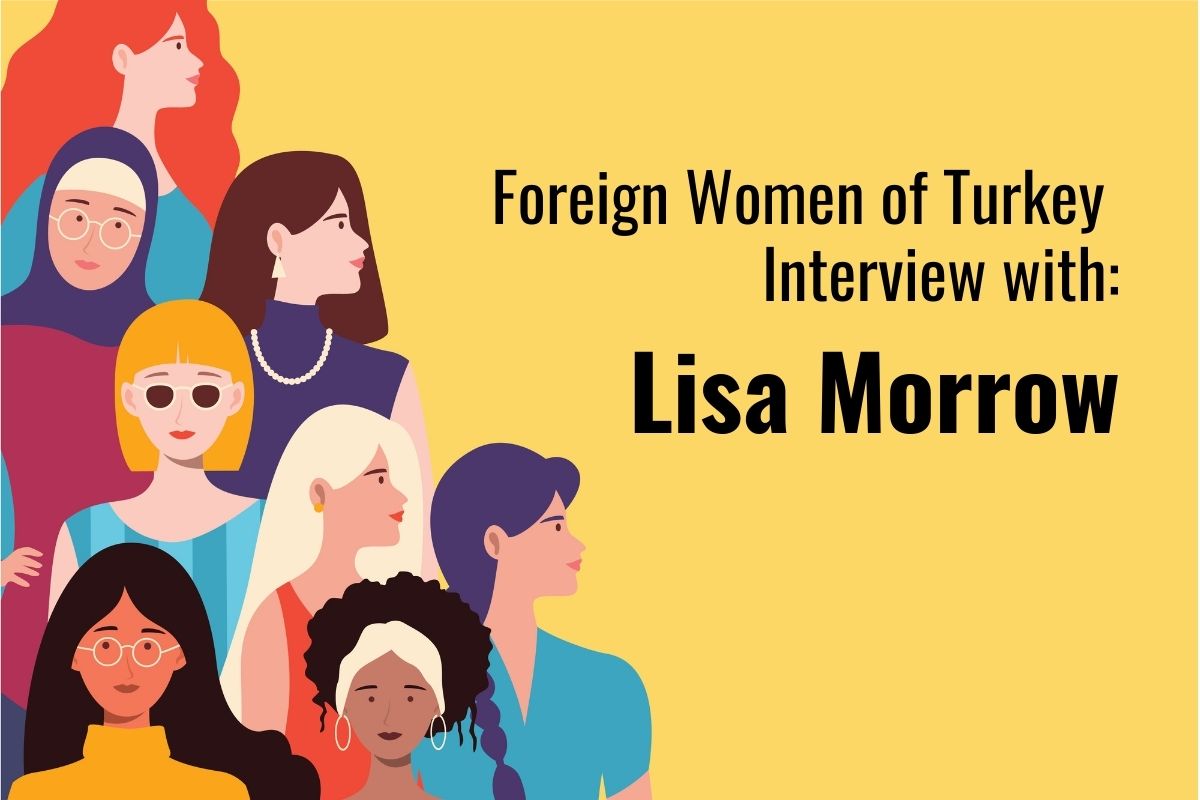
The Art of Living in Turkey contains affiliate links and is a member of the Amazon Services LLC Associates Program. If you make a purchase using one of these Amazon links, I may receive compensation at no extra cost to you. See my Disclaimers for more information.
Today, we’re kicking off a new series that explores the unique experiences of Istanbul life with foreign women living in Turkey.
In each interview, we’ll dive into the fascinating stories of women who, like today’s guest, Lisa, have chosen to call this vibrant country home.
I’m excited to introduce the first installment of Foreign Women of Turkey—a heartfelt project where I’ll be speaking with incredible women who bring an outsider’s perspective to life in Turkey.
Some women have settled in Istanbul, while others are scattered across Turkey’s diverse regions. Each one has their own story, their own insights, and their own way of navigating this extraordinary place.
For Lisa, who moved here permanently in 2010, Istanbul is more than just a city—it’s a living, breathing experience.
Through the lens of her background in sociology, she’ll share her journey of adapting to Turkish culture, the joys and challenges of expat life, and the nuances of Istanbul’s social fabric.
Whether you’re thinking of moving to Turkey or just visiting, Lisa’s perspective offers a treasure trove of insights and practical wisdom.
I hope this series inspires you to step outside your comfort zone, whether that means exploring a new country or simply seeing Turkey through fresh eyes.
After each interview, my goal is for you to feel a little closer to Turkey and perhaps a bit more adventurous—believing that, yes, you too could take on a bold new chapter in a place like this.
Lisa Morrow

For my first interview, I’d like to introduce you to Lisa Morrow.
Lisa is a sociologist, travel writer & author and has been living in Turkey full-time since 2010, though she was here a couple of times prior.
Lisa is witty and brilliant and has a wealth of knowledge. She will share about life in Istanbul and what keeps her here.
She is a no-holds-barred woman who lives boldly and authentically.
I think you will find her interview just as fascinating as I did. Make sure to read to the bottom to find out how you can get in touch with her yourself.
Let’s jump in!
What originally brought you to Turkey?
I was part way into my first big overseas trip, aged 24, with no set itinerary when I met an Australian woman named Georgia.
We both lived in a mad share house in Hammersmith (25 of us in a three-bedroom terrace).
The UK and Australia had a reciprocal agreement so I was there on a working holiday visa.
Back then it was common for young Australians to backpack around Europe for a year or more, using London as a base to pick up work to fund further travels.
When Georgia said she was going to Greece I followed and then joined her in Istanbul.
Turkey entranced me and I stayed for two months, despite the fact the Gulf War was raging and letters from home urged me to leave.
What was your first impression and how did it change over time?
The first time I came to Turkey people were extraordinarily friendly, and kind and always had time to help me.
Whether I was lost and happily overwhelmed by the chaos that is Istanbul or wandering through valleys filled with fairy chimneys in the extraordinary landscapes of Cappadocia, chance meetings with city-dwellers and villagers introduced me to Turkish culture at its best.
Now, although hospitality is still very much part of the tourist experience, life has become busier and in many ways harder for Turkish people so they have less time to chat and just hang out.
Add to that the all-pervasive influence of social media and a lot of the innocence and charm I felt in those early days has been replaced by slicker, less organic interactions.
It’s also been 30 years since I first came to Turkey so I’ve changed too.
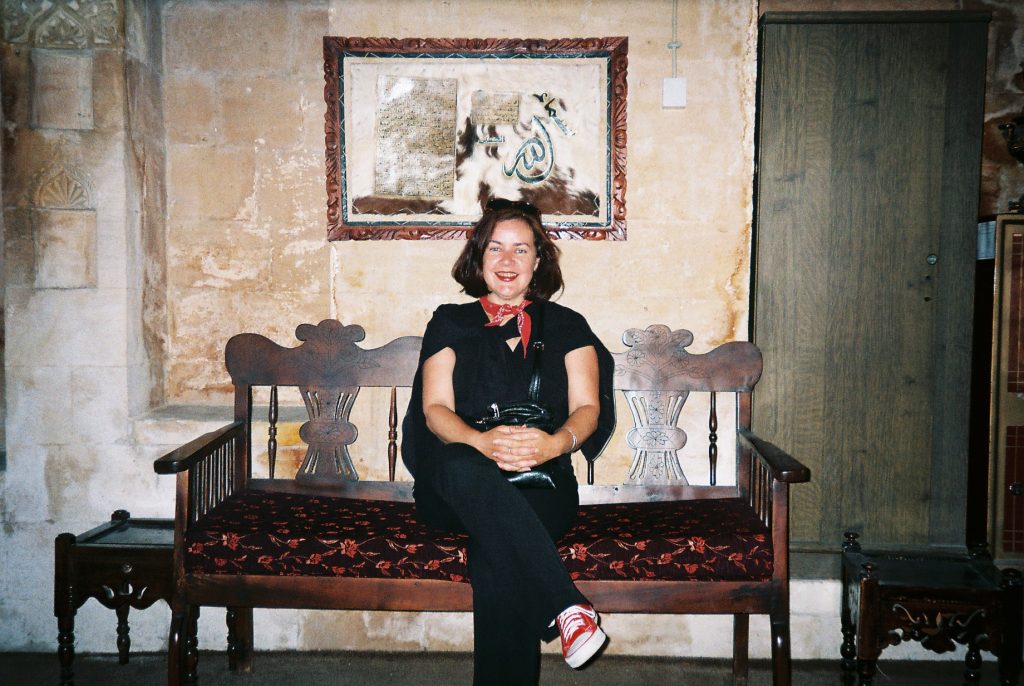
What’s one thing you’d like to communicate to others about life in Istanbul?
Despite what the media likes to suggest, Turkey is not the Middle East.
Certainly, the language, religion, and culture are different from those in most Western countries, but everyday life is actually very similar in many ways.
If you’re open to it, you’ll find you have a lot in common with the average Turk.
What’s your favorite hidden gem within Turkey?
Ah, that would be telling.
However, I will say that small coastal towns where the majority of holidaymakers are Turkish are my favorite finds.
Where old ladies in sturdy one-pieces supervise gorgeous teenage granddaughters in bikinis and pot-bellied dads teach their sons to swim.
Instead of using my Turkish for serious practical matters like paying council fees, banking, and so on I get to converse on frivolous topics like going to the hairdresser, where to get the freshest fish, and any number of unimportant but essential subjects that bond people together.
Seriously though, Kaş on the Mediterranean coast is my favorite place to go in late June or early September when I want to have a proper holiday.
Each year I make elaborate plans to ‘do things’, but always end up spending the week in the water, by the water, and near the water.
How do you survive the brutal summers?
I don’t cope with heat very well at the best of times. It really enervates me and blurs my thinking so I do everything I can to avoid getting too much sun.
When I’m at home in Istanbul during summer rather than off traveling, I complete all my errands before 11 am at the latest or after 4 pm.
Luckily shops are open late year-round in Turkey so it’s not hard to do.
I try to go to the pool at my gym a few times a week to immerse myself in cold water and just float aimlessly for a while.
It’s a great aid to daydreaming and thinking about the writing I plan to do.
Coastal escapes are definitely good, but on the Aegean rather than the Mediterranean where humidity levels are murderous.
Nonetheless, despite the temperatures, summer can be a good time to explore Istanbul.
Everyone goes somewhere else on holiday, meaning the city is beautifully empty compared to the rest of the time.
Just make sure you keep to the shade as much as possible, carry a big bottle of water, wear a hat, and slather yourself in sunscreen.
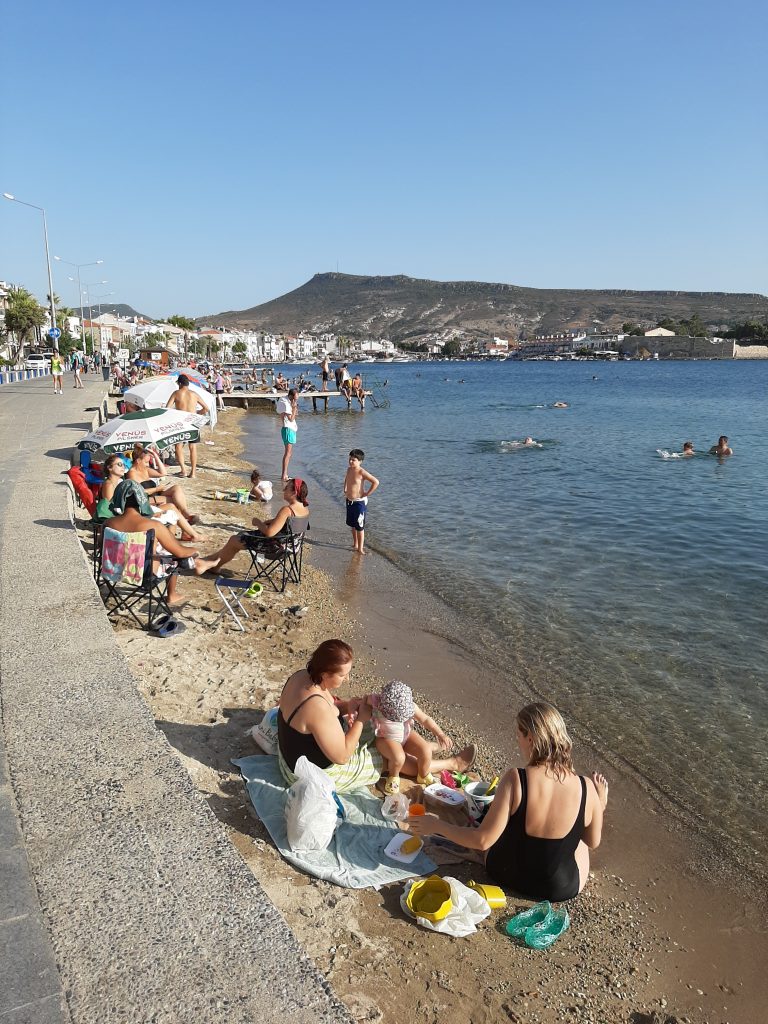
What is something that would be on your “must-see” list for someone coming to Turkey?
That’s a big question to answer given all Turkey has to offer. Istanbul is a must of course, on both sides of the city.
Even if you plan to come for a beach holiday in Bodrum, Fethiye or Antalya do allow for at least a 48-hour visit to the place I call home. You won’t regret it.
Then there are the spectacular natural landscapes of Cappadocia, Doğubeyazıt, (Mount Ararat), and Nemrut Dağı, incredible museums in Selçuk (Ephesus), Sanliurfa (Göbeklitepe), Ankara and Antakya, and the fascinating architecture of towns like Mardin, Kars (Ani) and Harran.
I could go on, but there just isn’t enough space.
How did you learn about culture?
I first came to Turkey having done no research in advance and I didn’t have any preconceptions of what the culture might look like or how the people would act.
It was before the advent of social media too. This meant I often learned the culture by making mistakes.
- I engaged with people, practicing my sometimes hilariously incorrect Turkish. Note to self – zarf is the noun for “envelope”, the object you use to hold a letter, while sarılmak is a verb meaning to envelop, or hug. The pleased store owner cleared this up for me but think I need to find a new stationery store!
- I followed their lead (it’s not unusual to get nearly naked in a hamam but I’m not comfortable shaving my lady parts in public, no matter how discreetly) and
- I tried to share what my culture was like (once leading to a surreal conversation comparing cremation practices to burials).
These days the existence of numerous Facebook groups for foreigners living in Turkey means you don’t have to step outside your door to find out where to buy a Christmas tree (at any stationery store, in case you were wondering, just not the one involved in Envelopegate).
Nonetheless, I haven’t really changed my method of learning Turkish culture because it means I’m actively in it, doing things, rather than watching fearfully from the sidelines.
What got you into writing?
Almost as soon as I could talk I started telling stories and once I began creative writing at school I wanted to be a writer.
Adult life and the necessity to earn a living intervened so writing was something I limited to my spare time.
Nothing much came of it until I moved to Turkey and became frustrated reading articles on Istanbul and Turkey that promoted incorrect and/or sensationalist stereotypes about the culture and the people.
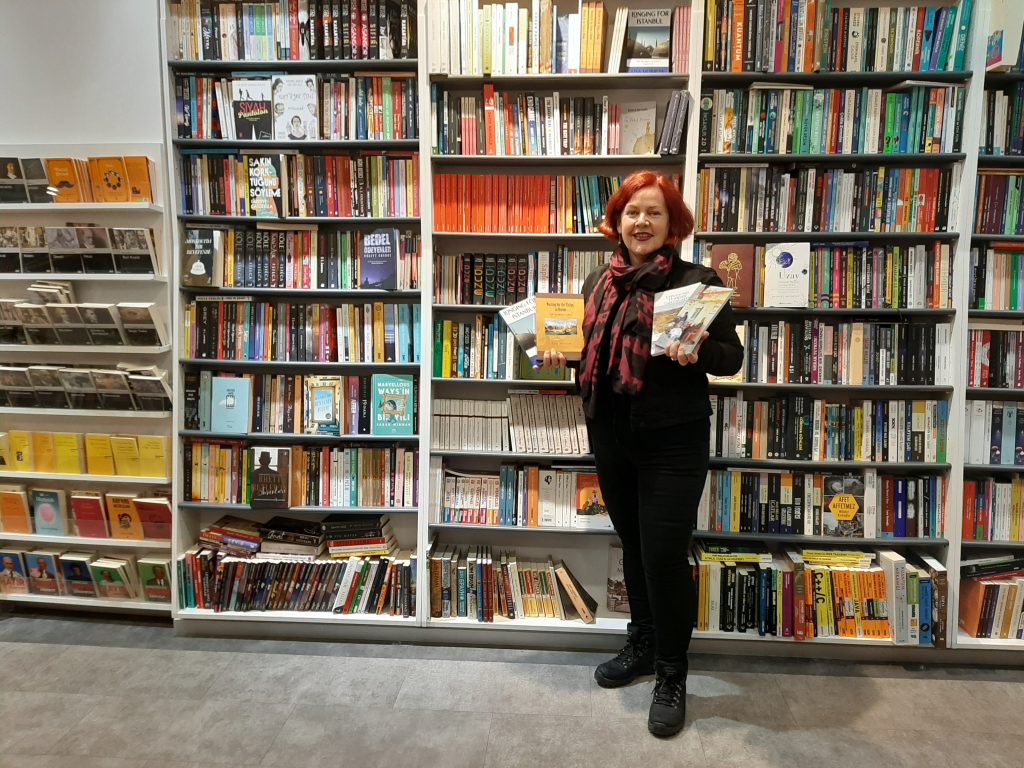
By chance, I ended up being interviewed on Australian radio about my life here and soon after met author William Dalrymple who encouraged me to put into words what I experienced every day.
That became my first book Inside Out In Istanbul, then my blog of the same name.
Through that, I was offered content work by a travel company and a bit later on, the chance to write whatever I liked about Istanbul for a luxury travel magazine, sadly now defunct.
I’m very much an autodidact so I taught myself the basics of pitching travel features and other story ideas to international magazines and my career has grown from there.
I have now written four books, available here.
Do you miss home? If so what about it?
Whenever I’m asked this question I feel I’m meant to say yes, but overall, the answer is no.
I don’t know how to describe what it means to be Australian and now I have a few close family members still living, there’s little to go back for.
That said, I do miss Australian humor. It’s very different from American humor. We’re more like the English with a twist.
Australians understate disaster, use insult as a form of endearment, and generally try not to take life too seriously.
I particularly like the latter because I’m a quite serious person and it does me good to be reminded of the funny side of life.
What is one thing you wish you knew before moving here?
I wish I’d known that in many ways Turks are stuck in their thoughts and habits.
Taking the initiative isn’t rewarded in Turkey and change, something that’s always difficult for people to embrace, no matter their cultural, religious, or ethnic backgrounds, is particularly hard to effect here.
It means I’ve had to be clear about my own values and know exactly what I can let slide and what is non-negotiable.
I find this very difficult because I’m not very self-aware or self-reflective. I just live my life and see what happens, so that’s been a big learning curve.
How has the different system here made it easier or harder to do what you wanted to?
People will be surprised to know that due to its centralized system, bureaucratic matters are pretty easy to complete in Turkey.
However that said, it’s essential to speak at least basic Turkish in order to navigate government websites, work out which office to go to, how to fill in forms, etc.
Weirdly, at least I think so, the people I’ve found most likely to speak English are security guards, in banks, population offices, council buildings, and so on, so there’s usually someone you can ask for help.
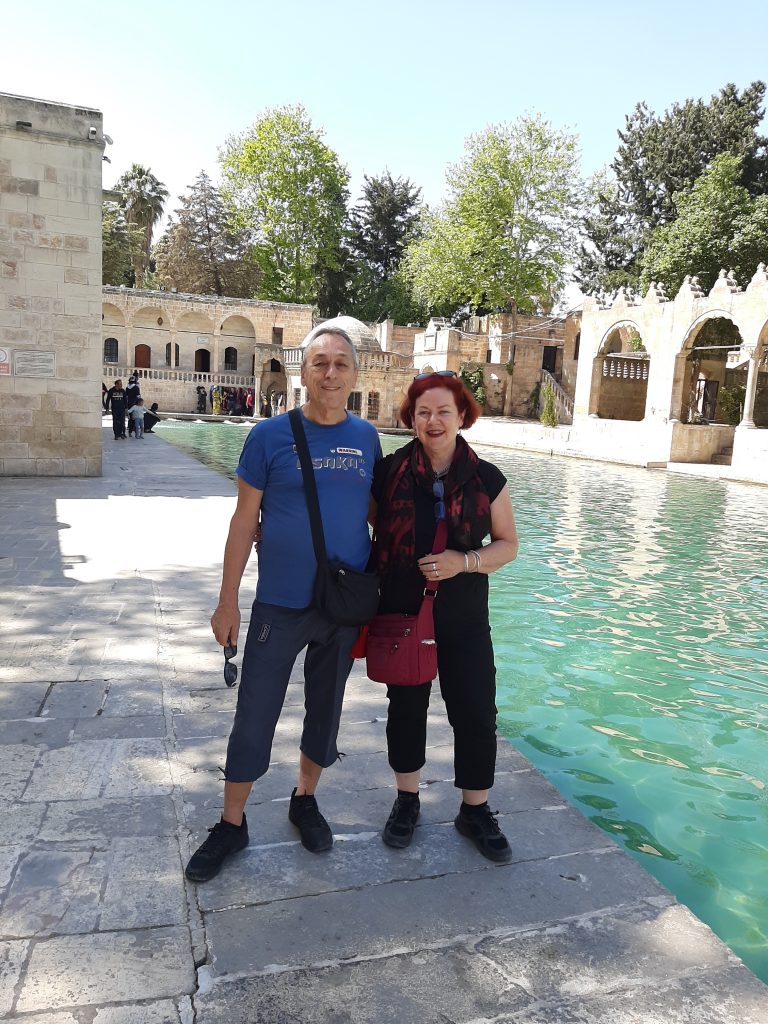
If you could tell someone who wanted to visit Turkey one thing what would it be?
Do it.
Don’t be afraid or think something bad might happen to you here.
Do your research before you come but rather than looking to unrealistic picture-perfect Instagram accounts for ideas, check out travel websites and blogs like mine.
Every week I explore and try new things to see and do in Istanbul, write about them on Inside Out In Istanbul, and also write articles about safety, food trends, solo travel for women, and more, for respected media outlets like CNN Travel, World Nomads, and others.
If you could tell someone who wanted to move to Turkey one thing what would it be?
Life in Turkey can be wonderful but you have to work at it.
Nothing is certain from one day to the next (the weather, the value of the currency, whether your relatives will turn up at your door unannounced in the next five minutes) so Turkish culture revolves around problem-solving rather than planning.
Depending on your character and expectations this can take some getting used to.
How can people get in touch with you?
I hope you enjoyed this interview with Lisa. She definitely is a wealth of knowledge and have thoroughly enjoyed becoming friends with her.
What about you? Was there anything that stuck out to you from her interview about the best of life in Istanbul? What inspired you the most?
If you have questions you’d like me to ask in future interviews, feel free to shoot me an email.
Read more:
- Check out what the Black Sea region has to offer
- There are 8 countries that are near Turkey…find out more
- Watch these shows and learn a bit of Turkish
- Here are some day trips you can take to escape busy Istanbul
- Taking a road trip? Read more about driving in Turkey
- You can rent your car from a local shop or the Airport
Turkey Vacation Basics
When I plan a trip these are the websites I use. I hope they help you plan your next adventure as well!
FLIGHTS: I am a huge fan of Skyscanner.
VISAS: You can use the free e-visa portal here but for a few extra dollars you can use iVisa and someone else will handle any issues that may come up.
E-SIM: When I traveled to SE Asia I discovered e-sims and I’m never going back. Airalo has been easy and cheap!
TRAVEL INSURANCE: I use TravelInsurance.com for my trips abroad.
CAR RENTAL: I have loved working with Discover Cars when I rent cars in country.
AIRPORT TRANSFERS: I have used these transfers many times and they are always great. If you’d like more options, I also recommend GetTransfers.com as they allow you to compare companies.
ACCOMMODATION: Find the best Turkey hotel deals on Booking.com.
CITY TOURS & DAY TRIPS: You can browse GetYourGuide’s website to find just the tour you’re looking for! We also recommend the MegaPass for major cities.
